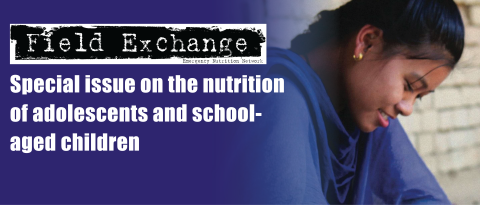Case Study 2: Pacific Kids Food Revolution (PKFR): The innovative way teenagers are leading the way in the Pacific Islands to improve nutrition
By Cate Heinrich, Pradiumna Dahal and Wendy Erasmus
Cate Heinrich is Chief of Communication with UNICEF Pacific. She has two decades of
experience working in the communication and education sectors in Asia Pacific, Eastern
Africa, Australia and the UK in both the humanitarian and development fields.
Pradiumna Dahal is a Nutrition Specialist with UNICEF Pacific. He has almost two decades of experience in public health nutrition and food security policies and programmes in both development and humanitarian contexts. He was one of the leaders in the formulation and implementation of the Multisector Nutrition Plan and the Scaling Up Nutrition Movement in Nepal.
Wendy Erasmus is UNICEF Pacific’s Chief of Child Survival and Development. She is a
specialist in mother and child health in developing contexts. Her career in international
emergency and development work spans more than 25 years, four of which have been with UNICEF Pacific.
Background
In the Pacific Islands, children and adolescents are exposed to a triple burden of malnutrition, including stunting, micronutrient deficiencies and overweight/obesity. As part of its programme to tackle the triple burden of malnutrition in 14 island nations, UNICEF Pacific partnered with the Pacific Islands Food Revolution (PIFR), an innovative programme that promotes local, healthy food across the region, to create a spin-off television series, the Pacific Kids Food Revolution (PKFR). The PKFR uses reality television as a stimulating, evocative and entertaining medium to promote healthy eating to children living in remote areas in the Pacific. The short television programmes of about a five minute duration use instructional formats with step-by-step recipes, making them usable by government bodies, schools, health workers and communities. During the films, adolescents lead cooking segments using locally available, nutritious foods.
PKFR began as a collaborative venture in 2019 during which UNICEF partnered with PIFR’s celebrity chef, Robert Oliver, to produce the final episode of PIFR’s maiden season titled ‘Foods for the First 1,000 days’. During production of season two, UNICEF and PIFR teamed up to design an episode on school lunches after which the spin-off series, PKFR, was created. This series featured three cookery teams comprised of Robert Oliver, UNICEF’s Pacific Ambassador, Olympian Pita Taufatofua, and six dynamic adolescents from the Pacific. During this collaboration, nutritious and tasty recipes were designed for PKFR using locally available foods and episodes were aired to coincide with the release of PIFR season two.
Results
PKFR was broadcast across 26 networks, reaching approximately five million people each week. Alongside this, radio and social media platforms were used to reach several million more people with key nutrition messages encouraging young people to cook healthy, local recipes with their families. The success of the series was credited to the dedication and creativity of the adolescents who brought it to life. This inspired Fiji’s Ministries of Health and Education to commit to healthy eating by joining the Pacific Kids ‘food warriors’, the youth participants in the TV series, in a launch of the PKFR on World Children’s Day.
A recent report (Busara, 2021) showed that the PIFR TV series, including the PKFR segments, inspired, educated and promoted cooking with local, healthy food. Use of the recipes gained traction online, reaching millions via social media platforms. Of the survey participants who engaged with the TV programme, 42% indicated that they had improved their diets after watching the series. This included 38% of participants in Fiji, 29% in Tonga, 46% in Samoa and 59% in Vanuatu. In 2021, UNICEF Pacific partnered with the national broadcasters of eight countries who engaged thousands more children via children’s TV shows, questions and answers with children on healthy eating, celebrity engagement, cooking at home during COVID-19 lockdown and school activities.
The recent report also showed that, within the context of COVID-19, families were more interested in learning about local food (Busara, 2021). This shift was related to reductions in personal income, the restricted availability and affordability of imported foods and the increased time available to grow ingredients and prepare meals at home.
Next steps
This partnership provides insight into the power of combining education and entertainment via media-based platforms (edutainment) to reach large audiences and positively influence eating habits, particularly focusing on greater consumption of locally available, healthy foods. It illustrates how to engage celebrity chefs and athletes to tap into their reach and connection with adolescents in order to promote nutrition literacy. Most importantly, it illustrates the influencing power of adolescents on healthy behaviours. UNICEF and PIFR are committed to continuing the prosperous partnership – so stay tuned! The trailer for the PIFR episode on school lunches can be viewed at: https://www.facebook.com/watch/?v=2810670475867505
For more information, please contact Cate Heinrich at cheinrich@unicef.org
References
Busara (2020) Pacific Island Food Revolution (PIFR) Year 3 Impact Assessment Report. Available at: https://www.pacificislandfoodrevolution.com/downloads/PIFR-Year-3-Impact-Assessment-and-Long-Term-Projections-Report-Summary-2021.pdf


